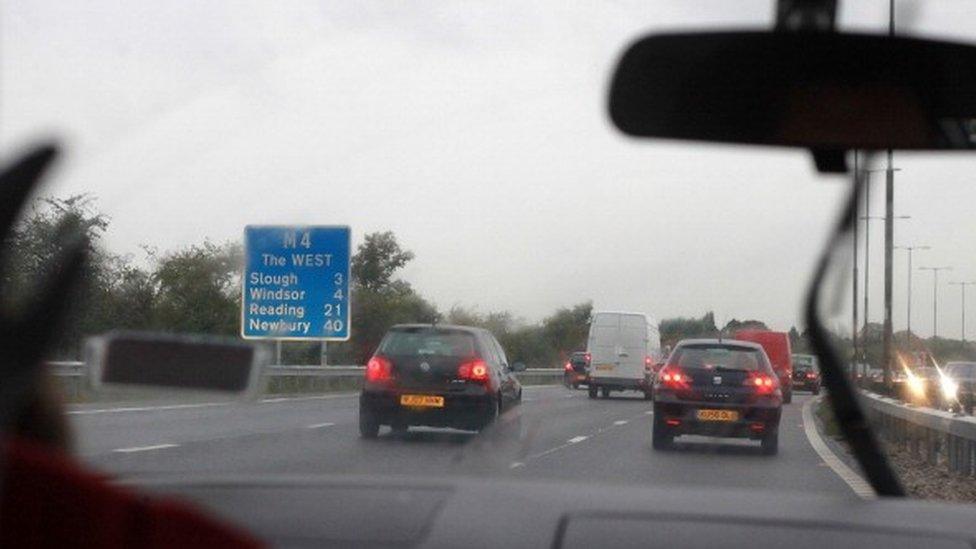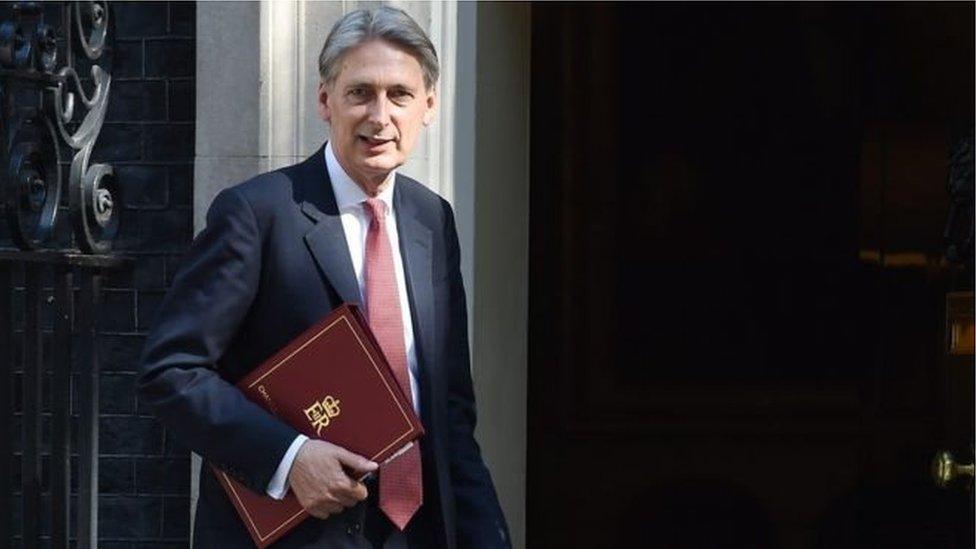Take care over these economic figures
- Published
- comments

Looking in the rear view mirror doesn't always tell you much about the road ahead.
And that is essentially what today's second quarter economic growth figures are about - a health check on the road behind us, not a snap shot of the here and now.
That does not mean that positive figures should be dismissed, just so much pre-referendum chaff.
Economic performance is based on several pillars, and two of the most important are sentiment (how confident do consumers and businesses feel) and activity (what are consumers and businesses doing, whether it's "buying stuff" or long-term investment decisions).
Confident figures can boost confidence, creating something of a virtuous circle.
Today's GDP figures are focused on the latter on those pillars, business activity, and they are the first estimate of the economic performance of the UK between April and June.
They show that, at least at the beginning of the quarter when business confidence was higher, the economy performed more strongly than many analysts expected.
Take care
The data published suggest that it was the UK's manufacturing sector that did the brunt of the heavy lifting, with industrial production rising by 2.1%.
You would have to go back to 1999 to find a figure that strong.
The much larger - and in terms of the UK economy more significant - services sector grew by 0.5%, down slightly on the previous quarter.
Care does need to be taken with these figures.
Firstly, they are only an initial assessment, and the data towards the end of the quarter will only be firmed up once the "revisions" are published over the next few weeks.
What estimates we do have suggest that activity did fall off through May and June as the referendum approached.
Second, the figures do not contain much information on what has happened to the economy following the June 23 vote.
And certainly some of the data published since then have been pretty gloomy.
'Taking stock'
Some very senior figures I have spoken to who are close to the Treasury say that the public should not be lulled into a false sense of security.
Which pretty accurately reflects what the chancellor told me earlier today.

I asked him, given the better economic news, whether those pre-referendum predictions of a possible recession following June 23 could still come to pass.
"I think it's far too early to say how the economy is responding yet," he told me.
"Inevitably people's reaction to a surprise [the referendum result] is caution, they tend to pause decisions.
"We know business confidence has taken a knock over the last few weeks.
"People are taking stock, working out what this all means.
"And I hope that we will start to see people taking those investment decisions again and start backing Britain for the future.
"Over the next few months we will see hard data coming through that tells us what is happening and we will then respond accordingly."
That response could be to "reset" policy on tax and spending, as Mr Hammond revealed last week.
How far he will need to go - if anywhere - is still to be seen.